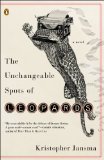Summary | Excerpt | Reviews | Beyond the book | Read-Alikes | Genres & Themes | Author Bio

Fred Waitzkin (Searching for Bobby Fischer), explores the underbelly of financial ambition in his debut novel, The Dream Merchant. Jim is the consummate salesman: gracious, persevering, and persuasive. Behind this cultivated exterior and wealthy lifestyle, though, is a greedy extortionist. Jim's story is pieced together through conversations with an admiring, anonymous friend, who has decided to write Jim's biography. When the friend begins research for the biography, Jim has fallen on hard times. He has left his wife for a young Israeli woman, who keeps him captivated by sex. Jim keeps her interested by telling stories from his younger days when he was a millionaire salesman and a gold mine operator in Brazil. The anonymous writer watches Jim "sell" to Mara his ability to make money from nothing. As he speaks, he creates dreams for her that keep her from focusing on the tattered furniture in their small rented house and the lack of money in their bank account. His stories promise that when Jim decides to make money, he will make it like he did in the past. Jim's greatest skill is his ability to sell anything, to capitalize on people's dreams so that they buy his wares, however useless. But this skill comes with a price, and as the anonymous writer puts together the fragmented stories of Jim's life, a narrative of selfishness and manipulation appears. Waitzkin's novel is a gritty, absorbing tale that investigates the price one pays to pursue incredible wealth.
Although The Dream Merchant has been compared to Joseph Conrad's Lord Jim (Jim, like Lord Jim, oversees a gold mine in Brazil), the novel is perhaps most like The Great Gatsby in its assessment of hope and the moral ramifications of pursuing wealth. Just as Gatsby justified near-criminal pursuits to make money that would win him his dream (his love Daisy Buchanan), Jim utilizes morally corrupt activities to achieve his dream of making as much money as possible and escaping his destitute childhood. The Great Gatsby is told from the perspective of Nick Carraway, a friend and concerned observer, while The Dream Merchant is narrated by Jim's friend, an anonymous writer who admires Jim but wonders at his choices. Both Nick and the anonymous writer must tell Gatsby and Jim's stories as honestly as they can. The two narrators never pass moral judgment, and in fact seem incapable of doing so because they are so enamored by their subjects. Both The Dream Merchant and The Great Gatsby set up a dichotomy of morals between their narrators and protagonists - with the reader as the ultimate decision maker on what makes a man moral - or not. Though both novels end differently, each suggests ways of thinking about wealth accumulation and how that may degrade morality.
The pursuit of dreams and the desire for money have long been topics of American fiction, and Waitzkin wades to the middle of the discussion. Though some have described The Dream Merchant as a dark morality tale, a label that implies that this novel will have a "moral" or lesson to take away by the end, the novel refuses to proscribe a view on whether Jim's behavior is right or wrong. Depending on the chapter in his life, the answer can cut both ways. Jim himself seems conflicted about his dealings. Though he clearly realizes the moral ambiguity of his actions, he nonetheless believes in what he does. He believes that despite the fact that his sales take advantage of gullible customers, he still is able to give them what they want: hope for something better. By the end, his blind ambition and greed have been stripped of social pretense, but he still believes that his work will provide some help to others. Perhaps Jim thinks that this stance will absolve him from wrongdoing. Maybe it does – and the novel does not suggest otherwise. The novel closes in a hopeful place with Jim telling the anonymous writer to "take care of himself." These last words may be the most revealing of all. Despite morals, despite family, despite responsibility to humanity, "taking care of yourself" may be the most important obligation.
Fred Waitzkin's novel is at times difficult to read, but this does not mean that it is any less fascinating or ultimately satisfying. Though there are few likeable characters in the novel – even though Jim is "likeable," the reader will wonder if they should like him for all his debasing activities – there is still much sympathy to be found. The characters are, at their core, searching for happiness. Their methods of finding it, particularly Jim's, are questionable, but all readers will understand their desire for better lives. Other reviewers have compared Waitzkin's novel to works by Conrad, Hemingway, Faulkner, Marquez, and Roth, and readers of these classic novels will find a similarly haunting narrative in The Dream Merchant.
![]() This review
first ran in the April 17, 2013
issue of BookBrowse Recommends.
This review
first ran in the April 17, 2013
issue of BookBrowse Recommends.

If you liked The Dream Merchant, try these:

The Unchangeable Spots of Leopards
by Kristopher Jansma
Published 2014
An inventive and witty debut about a young man's quest to become a writer and the misadventures in life and love that take him around the globe

by James Salter
Published 2014
An extraordinary literary event, a major new novel by the PEN/Faulkner winner and acclaimed master: a sweeping, seductive, deeply moving story set in the years after World War II.
Poetry is like fish: if it's fresh, it's good; if it's stale, it's bad; and if you're not certain, try it on the ...
Click Here to find out who said this, as well as discovering other famous literary quotes!
Your guide toexceptional books
BookBrowse seeks out and recommends the best in contemporary fiction and nonfiction—books that not only engage and entertain but also deepen our understanding of ourselves and the world around us.